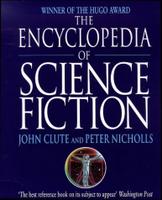Sunday, June 26, 2005
Writing in 1940's
George R. Stewart's, Earth Abides, was published in 1949 at the end of a decade dominated by World War II. Following the war there were many changes in society. Blacks were looking for more acceptance as equals, the GI Bill created an opportunity for more men to receive a college education, woman had a taste of the work force while the men were at war and they liked it, and of course, world power was dominated by the United States and the USSR.
As the Cold War begins many people become concerned about the "what if." What would happen if there was a nuclear war? How would humankind survive? Would it lead to an apocalypse? Stewart took these concerns and responded to them in Earth Abides. In his novel Stewart shows his readers that survival is possible.
 John Clute and Peter Nicholls, authors of The Encyclopedia of Science Fiction, feel the desire to prove one can survive is one of the reasons post-apocalytic stories are popular:
John Clute and Peter Nicholls, authors of The Encyclopedia of Science Fiction, feel the desire to prove one can survive is one of the reasons post-apocalytic stories are popular:
John Clute and Peter Nicholls feel that post-apocalyptic or disaster stories are so popular because they appeal to secret desires we all share: a depopulated world, escape from the constraints of a highly organized industrial society, and the opportunity to prove one's ability to survive.
D. D. Shade (1998)
As the Cold War begins many people become concerned about the "what if." What would happen if there was a nuclear war? How would humankind survive? Would it lead to an apocalypse? Stewart took these concerns and responded to them in Earth Abides. In his novel Stewart shows his readers that survival is possible.
 John Clute and Peter Nicholls, authors of The Encyclopedia of Science Fiction, feel the desire to prove one can survive is one of the reasons post-apocalytic stories are popular:
John Clute and Peter Nicholls, authors of The Encyclopedia of Science Fiction, feel the desire to prove one can survive is one of the reasons post-apocalytic stories are popular:John Clute and Peter Nicholls feel that post-apocalyptic or disaster stories are so popular because they appeal to secret desires we all share: a depopulated world, escape from the constraints of a highly organized industrial society, and the opportunity to prove one's ability to survive.
D. D. Shade (1998)
Even though Earth Abides was written in 1949 it is still popular today. Berkeley has included it in its summer reading list for students. It has been published in 27 languages and has received much praise:
If I should be naming five novels out of the last ten years most worthwhile, most worth reading, I would certainly include a book titled, Earth Abides. It reads as a good story and has profound meanings. I thank Brother Stewart for writing it. (Carl Sandburg, 1950's)
The novel is written with great conviction and emotional intensity. It moved me to tears when I first read it.(David Pringle, Science Fiction: The 100 Best Novels)
Stewart's optimistic vision of 1949 is one that is still appreciated today.
Comments:
<< Home
Great links. The first one has much useful material about the period. And Clute is a particularly important critic to know about.
Post a Comment
<< Home

